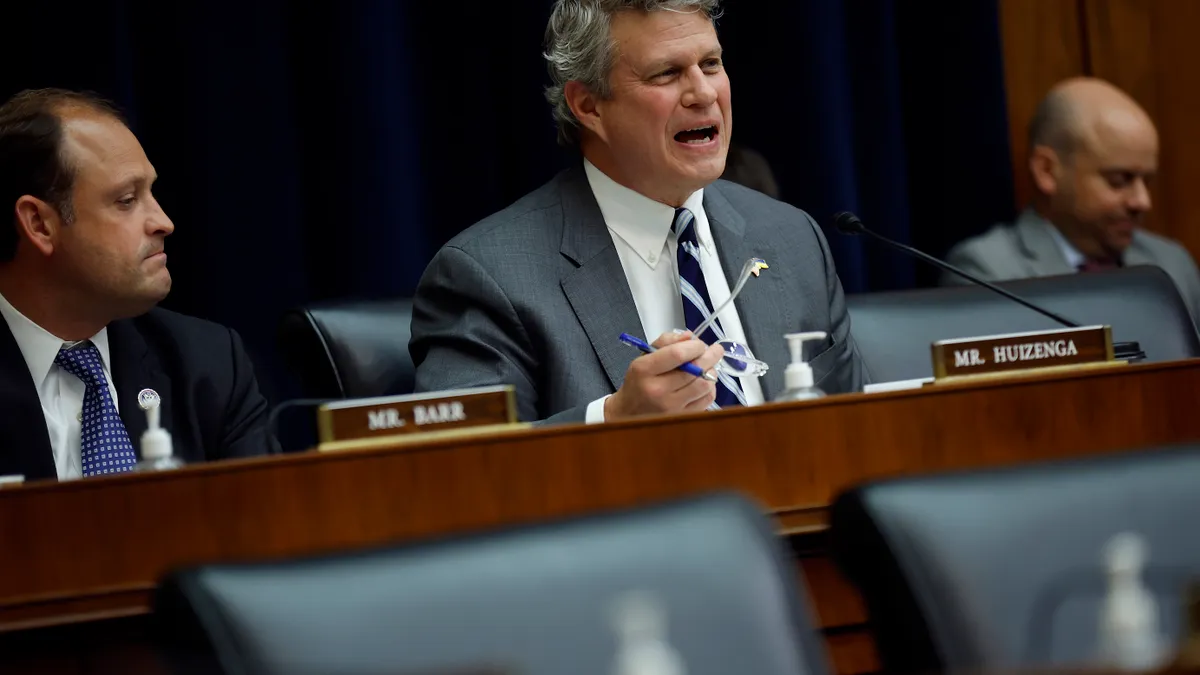Gemini Exchange, the crypto currency trading platform founded by social media pioneers the Winklevoss brothers, announced in January it will be offering a crypto rewards credit card, and on February 2 said it will be launching a crypto yield bearing program, the latest example of a crypto trend into banking services that is picking up steam.
Over the past two years there has been a steadily louder drumbeat of blockchain finance enterprises seeking to make plays into banking, a push that has its roots in the difficulty that crypto concerns themselves have traditionally had in accessing banking services. Not only would offering banking services provide a new revenue stream, but there would also be no need to seek third-party bank partners; cryptos could provide those services to themselves and clients in-house.
"Strategically what is driving us into banking type services is our desire to keep clients within the Gemini ecosystem, offering as many services as possible," says Gemini COO Noah Perlman, adding that this impetus might also be a factor driving other crypto players into banking.
Pivot to payments
In last year's third quarter, to launch its move into credit cards, Gemini quietly acquired Blockrize, a tiny fintech that had been developing a crypto rewards credit card. Only in mid-January did Gemini announce the acquisition, along with its intention to offer the card later this year.
Gemini will give 3% Bitcoin back on all purchases. Perlman has said card financial rewards are changing. COVID-19 has certainly impacted rewards, he said, with common ones like travel and hotel points obviously less attractive, but change is also being driven by the fact that these types of rewards "are being consistently devalued."
More recently, the exchange announced Gemini Earn, a crypto yield bearing program. While Gemini was quick to caution it is not a deposit-taking institution — the company is regulated as a trust bank — the exchange is offering an incredible 7.4% APY with Gemini Earn.
Perlman said Gemini Earn isn't at all like a bank CD, but instead derives its income from a securities lending type operation. "Under Gemini Earn, we lend out our clients' crypto assets to institutions and then split the revenue."
Gemini Earn will roll out to select Gemini customers first and will be available to all customers later.
Gemini Earn will be for all crypto assets supported by Gemini. And in the coming months, Gemini says, it plans to expand Gemini Earn to bear interest on the Gemini dollar, Gemini's regulated stablecoin with a 1:1 peg to the U.S. dollar.
Stablecoins are different than other crypto assets in that their value is linked to fiat currencies.
In one of the most high-profile crypto banking developments, late last year San Francisco-based Kraken Digital Exchange was granted a special depository institution license by the state of Wyoming. Cheyenne-based Kraken Financial Services became the first licensed bank to provide deposit-taking, custody and fiduciary services for digital assets.
And the Office of the Comptroller of the Currency (OCC) last summer provided clarification on crypto and banking in a key interpretive letter.
The regulator said that national banks have the authority to provide fiat bank accounts and cryptocurrency custodial services to cryptocurrency businesses. The letter also reaffirmed the OCC's earlier announcement that national banks may provide permissible banking services to any lawful business, including cryptocurrency businesses.
Banking on crypto
These moves no doubt greased the wheels for JPMorgan Chase's groundbreaking announcement that it would be establishing relationships with crypto players, one of the first of which was Gemini. And JPMorgan is the first bank to mine its own cryptocurrency, called JPM Coin.
Bank of America has filed 50 crypto related patents, by far the most of any bank. And while last summer BofA said it considers crypto to be the same as cash, some observers don't consider the bank to be all that crypto friendly. Bank of America Securities' chief investment strategist just last month said cryptocurrencies are a "giant bubble."
Crypto friendly banks include Ally, Goldman Sachs and British giant Barclays.
Despite improvements recently in crypto player relationships with traditional banks, there has been a rush by cryptos to apply for banking licenses. The latest was crypto payments concern BitPay, which in December joined crypto 800-pound-gorilla Bitcoin, and others, in filing for a national banking charter with the OCC.
BitPay National Trust Bank, if approved, will be headquartered in Alpharetta, Georgia.
The OCC has leaned too much in favor of crypto players, according to critics. Brian Brooks, former acting comptroller of the OCC, possesses a blockchain background is deep and extensive. Before taking on the acting comptroller spot, he was chief legal counsel for crypto powerhouse Coinbase.
Brooks' fans saw him as a prime force for helping move crypto blockchain finance into the mainstream. Eden Doniger, BitPay's general counsel, has said he considers the OCC to be on the cutting edge when it comes to crypto finance regulatory leadership.
Brooks' crypto openness received pushback, with some lawmakers requesting that President Biden overturn Brooks' crypto initiatives. The Biden administration has given no clear indication of its stance, and Brooks resigned from the role on January 14, replaced by current acting comptroller, Blake Paulson.
Future growth
Since receiving its trust license from the state of New York in 2015, Gemini has grown rapidly. While Perlman wouldn't divulge Gemini's revenues, citing the firm's status as a private company, he pointed to employment as a growth metric. Gemini now has 325 employees, up sharply from around 175 in 2018.
A big factor in growth recently, according to Perlman, has been rising institutional interest in crypto. While growth in the number of retail clients is much stronger – it stands at 75% retail, 25% institutional – the fastest increase in volume is coming from the institutional side, he says.
Probably the most high-profile example of institutional crypto interest is insurance giant MassMutual's move in December to make a $5 million investment in institution focused crypto concern NYDIG. At the same time, the venerable 169-year-old insurer poured $100 million into crypto for its own account.
After a lengthy legal dispute with Facebook CEO and founder Mark Zuckerberg, Gemini founders Cameron and Tyler Winklevoss took a $65 million settlement – cash and Facebook stock – based on their claim that Zuckerberg stole the ConnectU social media idea developed by the Winklevoss' while they attended Harvard.
They are among the very earliest crypto enthusiasts. From the Facebook settlement proceeds, the Winklevoss' initial $11 million, 2013 crypto stake made them the first crypto billionaires by 2017.


















